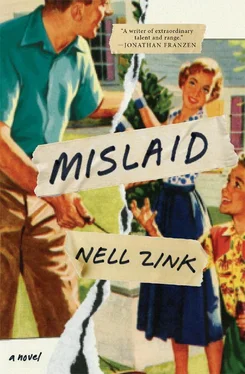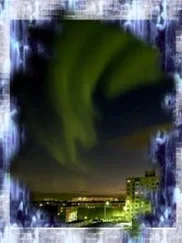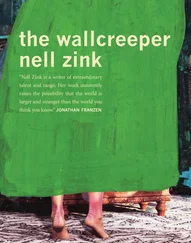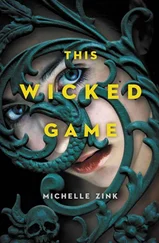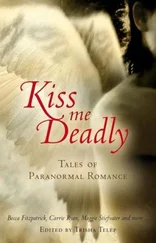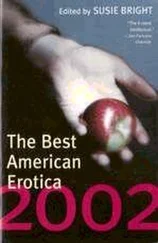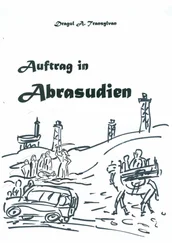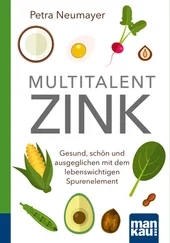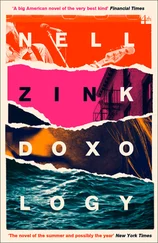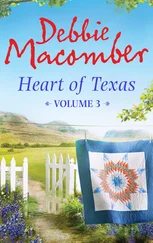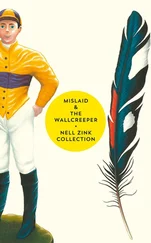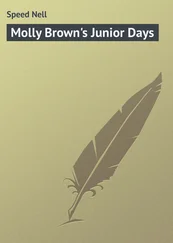She wondered if it was too late to start over. She placed herself squarely in front of the full-length mirror on Karen’s closet door and took stock.
Her face hadn’t changed much. Her hair was almost the same. Her feet weren’t any different. Her hands had aged. And that was all she could see of herself. The rest was covered by a rugby shirt and carpenter’s pants.
Grimacing, she took off the shirt and looked at the mirror again. The baggy pants looked ridiculous with her upper body, like a jug holding a calla lily, so she took them off, too. Her dingy bra and underwear were also unflattering and she took them off. Clad only in her own soft hair, she remembered the day she had danced with her beautiful debutante gown. All her naive joy about showing the world her long neck, straight shoulders, and weensy waistline.
The body parts were still there, but she wanted the dress back.
You idiot, Meg thought. You’re a femme!
She rifled through Karen’s things and found a disposable razor to shave her legs. Her own smooth legs drove her wild with lust.
The next morning she drove to Broad Street in Richmond and spent three hundred dollars at Thalheimers. She didn’t care who saw her. After she put on the first outfit and shoes she bought, she couldn’t even recognize herself.
She let a salesgirl do her face, but she didn’t buy any makeup. One step at a time.
The Saturday after that, buying milk at the bait shop while wearing a close-fitting knit dress with tights, almost as an experiment, she saw a slightly younger woman climb out of a black Fiero. The woman had low-slung jeans on, with a big silver belt buckle, and her hair was cut to expose her ears. To Meg she seemed a pretty person done up tough, like a puppy with a spiked collar. Her hair and eyes were black and her skin was tan, with red lipstick like Malibu Snow White.
Meg lingered at the cash register and said, “You’re not from around here.”
“I’m looking for a house,” the woman said as she paid for a six of Molson.
“I know one for sale that I could show you.” It was true. Karen’s ten-dollar pediatrician and his wife were liberals who had despaired of meeting like-minded couples and were looking to move away. The only thing still tying them to their five-acre farmette was the hundreds of yards of antenna wire strung from the trees. The pediatrician was a ham radio operator.
“I only need a year lease.”
“They would do that. If they rent and hold, they’ll get a better price. Property values around here go up and up.”
“Are you a Realtor?”
“No!” Meg looked down. “I’m a. .” She paused, unable to think of a job title that would justify her nice outfit. “Housewife!” she said finally. She could be one of those Ladies Who Lunch.
She got in the strange woman’s car and after a twenty-minute ride zigzagging on numbered country roads, naming the unmarked crossings, showed her the sign, FOR SALE BY OWNER.
“Let’s drive up and see it,” the woman said.
“But don’t get out of the car,” Meg said. “They have dogs.”
The woman rolled the car slowly up the last bit of driveway and said, “Wow, this place is really country.” The pediatrician’s house was new. It stood on a high concrete foundation and had blue vinyl siding and small windows. It looked like a plastic toy. The wires connecting bare treetop to bare treetop were hard to miss. The trees were black walnuts that had grown in the woods and been left standing, scarred by the bulldozer they’d used to grade the clearing. The pediatrician’s wife’s chickens had scratched half the yard bare.
“And you were expecting?”
“Well, Realtors are always showing me places that are beautiful and historic and, I don’t know, kind of totally gay. You know what I’m saying?”
“You mean those Victorian gingerbread houses you can turn into a bed and breakfast, and old general stores with porch swings.”
“You got it. This house is reality.”
“Humankind cannot bear much reality,” Meg said.
“T. S. Eliot,” the woman said. “This house might be a little too much reality.” She swung the car around and drove back to the road.
“You into poetry?”
“Not exactly. I teach women’s studies at CUNY, but I’m on sabbatical next year with a gig at Hampton U because Howard was booked solid, but maybe it’s better to get south of DC. You know DC is a world all its own. I’m trying to write a book about this black lesbian playwright nobody ever heard of, and the thing is, maybe I know her work up and down and inside and out, but I cannot tell you what’s drawn from life. Empiricism is a huge big deal right now. Authenticity. Reality. So I decided to do a sabbatical abroad. Spend some time at a historically black school, learn the words, the rhythms. Know what I mean? You hear poets read, but if that’s all you hear, you’re not hearing them. You have to hear them talk. At Hampton I’m in the theater department.”
As she shifted into fourth the woman turned her head and smiled. She added a trace of condescension and sympathy, softening her smile around the edges, when she saw that Meg had not understood a word she said. Meg was staring blankly as a veal calf tied out in a field.
“I don’t get this state at all,” the woman said, changing the subject. “It’s a strange world down here, economically. All that stuff you read about sharecroppers and tenant farmers doesn’t seem to fit. It’s rent-to-own shops, and people selling the same real estate over and over for a balloon payment due in two years. Poverty, poverty, everywhere you look, but no check-cashing places. You can’t throw a rock without hitting a bank! I just don’t get Virginia. I wish somebody would just explain it to me—”
“Enough,” Meg said, shaking her head. She looked at her knees and wriggled in the bucket seat so she could straighten her skirt. “Just stop. I can’t take it. If you don’t let me out of this car, I’m going to go crazy, and I don’t even know your name.”
The light dawned. The woman downshifted and pulled over to the side of the road. Meg jumped out and across the ditch into a soybean field. There was nowhere for her to hide. She just stood there cowering while the woman bore down on her with purposeful strides. “I’m going to fuck you now,” she informed Meg, simultaneously kissing her and pushing her to the ground between two rows of soybeans in a sort of combination tango step and wrestling move.
“Aaanh!” Meg wailed in response.
“What was that?” The woman drew back.
“Please don’t mind me. That was just my life flashing before my eyes.”
“One more time. I need to fuck you.” Meg dissolved in a flash of white light. It was like the sex scenes in Cosmopolitan . “That’s better,” the woman said.
She introduced herself as Luke, short for Loredana De Luca. She was able to free Meg from her writer’s block with one well-placed observation. “You’re such a separatist when you write,” she said. “If you would just put your lesbians out in society, you’d have your dramatic conflicts. You’d even have roles for men!” Audiences, she added, love watching women, but actors hate being sidelined. That’s why all the great female roles predate actresses. Antigone was a guy in a mask. Portia was a guy in a dress. So don’t sideline your actors.
Meg’s next draft was about lesbians in Iran. It had only two female roles, but very good ones, with a stoning and a suicide. Luke sent copies to friends in New York. The scene in which they take off their chadors to reveal rugby shirts was compared with the nude scene in Equus. People wanted to produce it and give Meg money. Her life had finally begun.
The lovebirds spent a lot of time at the squirrel sanctuary, as their lifestyle was incompatible with family values in Centerville. The horizontal light making the maples glow flame orange, the deep blue water dappled with the shadows of fish. Lying entwined in a rowboat, letting the wind push them into reeds, hearing the call of migrating curlews. Because she had to teach, Luke couldn’t be on the Eastern Shore all the time. But she was a fast driver.
Читать дальше
Конец ознакомительного отрывка
Купить книгу
